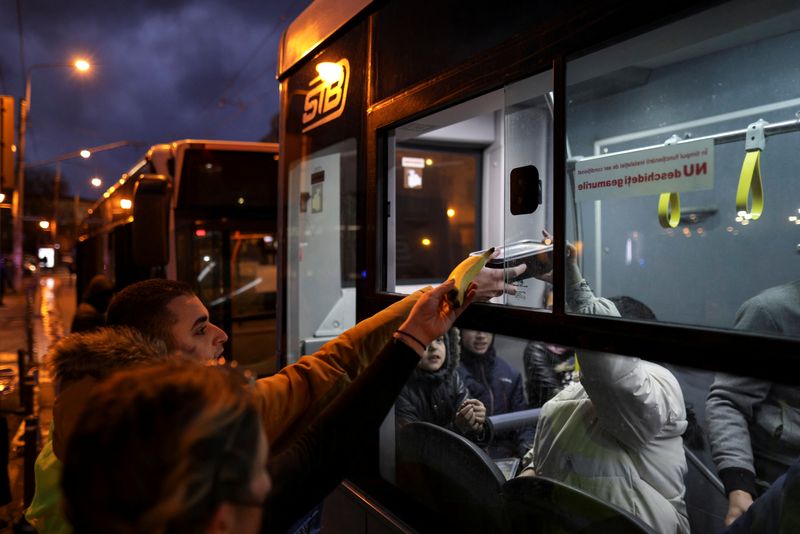LONDON (Reuters) – Britain will next week streamline a system to allow Ukrainians to enter the country, its interior minister said on Thursday after an outcry over a requirement for people fleeing Russia’s invasion to get biometric tests before being allowed in.
The Conservative government has repeatedly said it is being “generous” to Ukrainians who want to come to Britain by offering two routes, but critics say ministers are prioritising bureaucracy over the welfare of those fleeing war.
“From Tuesday, I can announce that Ukrainians with passports will no longer need to go to a Visa Application Centre to give their biometrics before they come to the UK,” Home Secretary (interior minister) Priti Patel told parliament.
“Instead, once their application has been considered and appropriate checks completed, they will receive direct notification that they are eligible for the scheme and can come to the UK,” she said. The change in policy came on the advice of the security and intelligence services, Patel added.
“In short, Ukrainians with passports will be able to get permission to come here fully online from wherever they are and will be able to get a biometrics once in Britain.”
While households across Europe have taken in Ukrainian families forced to flee their homes, Britain has demanded they secure a visa first, with some refugees in the French port city of Calais being told to go to Paris or Brussels to apply.
The right-wing Daily Mail newspaper said the “shambolic” visa system required refugees to produce paperwork showing they had been living in Ukraine before Jan. 1, and to have birth or marriage certificates to show links to Ukrainians living in Britain.
As a result, Britain has accepted far fewer Ukrainians than the likes of France and Germany, or Ukraine’s nearest neighbours, which have waived the need for visas.
By Wednesday, Britain had granted over 950 visas to Ukrainians since the start of the war. By comparison, Poland, a neighbour of Ukraine, has taken in more than 1.2 million Ukrainians. Ireland has accepted 2,500.
(Reporting by Kate Holton, Muvija M and Elizabeth Piper, editing by Mark Heinrich)






















